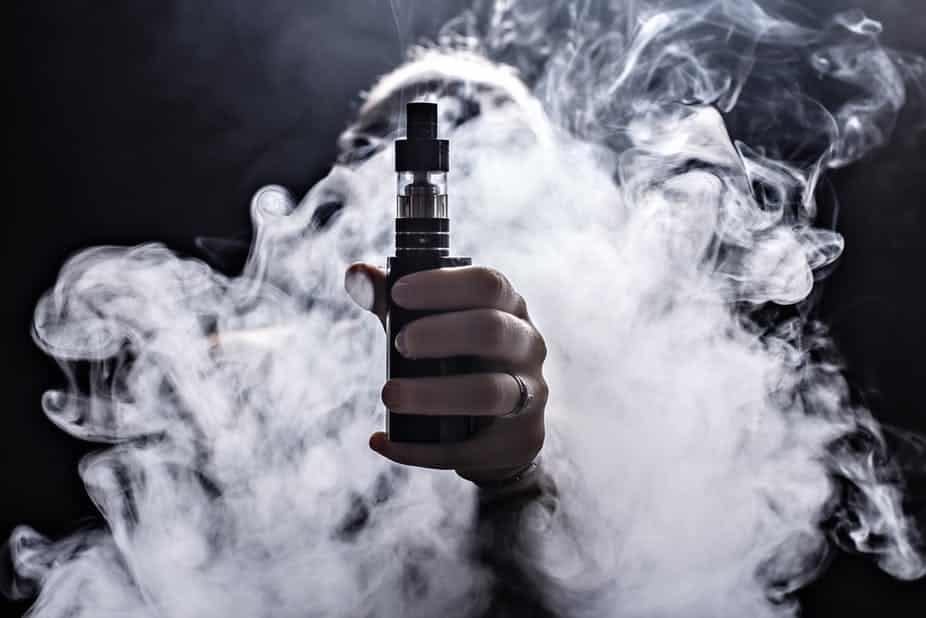Start exploring drug and alcohol rehabs today. Treatment providers are available to answer your questions.
addiction is a chronic disea characterised by compulsive use of substances (including alcohol, tobacco, illegal drugs and prescription medications) despite harmful consequences. Although the symptoms may vary among individuals, addiction always involves an inability to control one’s actions. People who suffer from addiction often experience serious emotional distress, including anxiety, depression, hopelessness, guilt and shame.
Addiction can occur at any age, but it usually begins during adolescence or early adulthood.

The most common treatment options for addiction include counselling, psychotherapy, cognitive behavioural therapy, group therapy, family therapy, pharmacological intervention, Detox for substance withdrawal and inpatient residential treatment.
Therapy lies at the heart of all addiction treatment. While medication, detoxification programmes, and other forms of treatment can address specific aspects of addiction and substance misuse, only therapy can uncover and address the underlying issues that cause and exacerbate addiction. A great variety of models and settings for therapy have been developed over the past few decades as addiction treatment has matured as a field of medicine. Anyone considering addiction therapy for themselves or a loved one should have a fundamental awareness of these approaches, their benefits, and their limitations.
Therapy is an integral part of any addiction treatment programme. The are many reasons why it’s so beneficial for recovering addicts:
It can help you understand what caused your drug or alcohol use problem;
It provides insight into how you think about yourself, others and your environment;
It helps identify coping strategies that may be helpful in managing stressors and triggers;
It teaches skills that will help you maintain abstinence from drugs and alcohol.
In addition, therapy can also play an essential role in helping you develop social support networks, which can be very important in maintaining sobriety.
The type of therapy you will receive will depend on several factors, including your personal preferences and needs, the rehab setting, where you live, and the availability of therapists who specialise in treating people with addictions.
Some common types of therapy include Counselling, Dialectical Behaviour Therapy (DBT), Cognitive Behavioural Therapy (CBT), Act-acceptance and Commitment Therapy.
Addiction is a serious problem that needs immediate attention. Call us on 0800 999 1083 to discuss treatment options.
To effectively treat addiction, we need first to understand why someone would become addicted in the first place. This requires exploring the root causes of the addiction, which is often difficult because addicts tend to deny their problems. However, when they admit their addiction, they usually describe themselves as being out of control and unable to stop using despite knowing that this behaviour is harmful. If you struggle with addiction, then you know that these feelings of helplessness are real.

If you want to overcome addiction, then you must learn to take responsibility for your actions. You cannot blame anyone else for your addiction, nor should you try to justify it by saying that everyone does it. Instead, you must accept that you made choices that led to your addiction, and you must learn to make different ones in the future.
If you find yourself thinking, “I’m not like that” or “It was just one time”, then you might benefit from talking to a therapist about how you feel. It is normal to feel ashamed or embarrassed about your addiction, but you don’t have to keep it secret. Talking to a professional will allow you to explore your thoughts and feelings without judgement.
Therapy addresses the fundamental causes of addiction. In addition to bringing them to light and allowing the addict to address them, therapy can offer effective behavioural strategies to mitigate or overcome those causes and avoid engaging in further substance abuse. Although addiction has a physical component, it is essentially a psychological problem. Once the patient has gone through detox and withdrawal and any physical dependency has been eliminated, therapy is the most effective long-term treatment option.
Addiction is a serious problem that needs immediate attention. Call us on 0800 999 1083 to discuss treatment options.
Therapy is regarded as the single most important and effective element of addiction treatment in terms of its long-term effect.
The psychological aspects of addiction must be addressed, as well as the faulty thinking patterns and harmful behaviours that perpetuate it. Therapy leads the way and is an indispensable tool for everyone undergoing addiction treatment.
Research shows that psychotherapy is an effective form of treatment for alcohol and drug use disorders. Studies show that it works better than medications alone. Psychotherapy helps patients develop coping skills and change their attitudes towards drugs and alcohol. The goal of therapy is to help patients establish healthy relationships with substances and avoid relapsing into addictive behaviours.

If you think you may be addicted to drugs or alcohol, seek medical advice immediately. If your doctor diagnoses you with a substance use disorder, they will refer you to a specialist who can provide further information about available treatments. There are three main reasons why people choose to undergo therapy:
1. To learn new ways of thinking and behaving
2. To work through personal issues
3. To recover from addiction
Therapy can help you achieve any of these goals. However, if you are not ready to commit to long-term therapy, consider seeking support from a 12-step programme like AA or NA.
You could also participate in behavioural therapies as part of a holistic addiction treatment plan such as those provided in some addiction treatment centers.
In some extreme cases, a court may also mandate therapy if your substance abuse has led to criminal activity or if you are considered a danger to yourself or others.
The goal of addiction therapy is to help addicts overcome their addictions. This means learning new ways to cope with triggers, stressors and urges so that your life does not revolve around substances. It also involves developing healthy coping skills so that you do not turn to addictive behaviours when faced with difficult situations.
Therapy can take place in various formats, such as individual sessions, group counselling, family counselling, and telephone counselling. Some therapists work primarily with clients face to face, while others use video conferencing technology to conduct sessions remotely. Many therapists will also offer services outside of traditional office hours, such as after-hours appointments or weekend appointments.
During treatment, therapists encourage patients to discuss their history of drug use and the reasons behind it. They also help them develop coping strategies to prevent relapse. Therapists might ask questions such as: “Why did you start using again? What was going on in your life when you started using? How does this relate to your family?”
The therapist will also try to determine whether the patient is dealing with chemical dependency, another mental health issue, or both. This helps the therapist decide which form of therapy best suits the patient. For example, some people benefit from group therapy, while others prefer individual therapy.
Once the client is comfortable discussing their history, the therapist will begin working towards the goal of abstinence. The first step is to remove the addict from harmful situations. This includes removing them from places where drugs are easily accessible and avoiding activities that lead to risky behaviour.
Next, the therapist will help the client identify triggers that cause cravings and urges to use substances. Once the client understands the role of triggers in their addiction, the therapist will work to reduce or eliminate them.
Finally, the therapist will help addicts develop healthy habits and coping skills, so they do not become vulnerable to relapse. Some of the most common therapeutic techniques used by therapists include cognitive behavioural therapy (CBT) and motivational interviewing (MI). CBT focuses on changing thoughts and behaviours around addictive behaviour. MI encourages clients to take responsibility for their own actions and offers solutions to problems rather than focusing on blame.
There are many forms of psychotherapy. Each approach has its own set of benefits and limitations.
While many forms of therapy are available, some people may benefit from a combination of therapies. For instance, an individual therapy session followed by a group session could provide additional benefits. The goal of therapy is to help you develop coping skills so you can manage your addiction and lead a healthy lifestyle.
The following are some of the most prevalent therapy approaches used in addiction treatment:
This form of therapy uses a combination of techniques to help you change negative behaviours and thinking patterns. CBT is based on the idea that our thoughts and emotions affect how we behave and feel. For example, when you’re stressed, you might feel irritable and anxious. When you start to think negatively about yourself and your situation, you might begin to feel worse about yourself. By changing these negative thought processes, you’ll be able to make better decisions about your behaviour and improve your mood.
Cognitive behavioural therapy is used to treat anxiety disorders, depression, eating disorders, personality disorders, post-traumatic stress disorder (PTSD), obsessive-compulsive disorder (OCD), attention deficit hyperactivity disorder (ADHD), and drug and alcohol use disorders.

DBT is a type of cognitive behavioural therapy (CBT) that incorporates traditional CBT techniques with concepts like distress tolerance, mindfulness, and acceptance, some of which are derived from Buddhist meditative practises. It requires that the patient sees their therapist as a partner in treating their psychological problems. Meanwhile, the therapist strives to embrace and validate the patient’s emotions while also demonstrating how some of their behaviours may be harmful and suggesting better alternatives. DBT aims to modify the patient’s behaviour and teach them new skills in order to help them achieve “a life worth living,” as determined by the patient.
Dialectical Behaviour Therapy (DBT) is based on the idea that our thoughts influence our behaviour. DBT seeks to improve emotional regulation and reduce impulsive and aggressive tendencies.
This type of therapy is particularly helpful for those suffering from addiction), which can involve unstable moods, anger, impulsivity and self-harming behaviours. Dialectical behaviour therapy is often used in conjunction with other types of therapy.
Don’t go through the process of recovery alone. Treatment providers can answer your questions. Get in touch with one today.
Call 0800 999 1083 today!
Individual therapy is often the first choice for most patients seeking addiction treatment. It is usually provided by a trained therapist who meets one-on-one with each patient. This kind of therapy is particularly effective because it allows the patient to talk openly about their problems without fear of being judged. Individual therapy sessions typically last between 60 and 90 minutes per week.
Individual therapy involves working one-on-one with a client. It usually takes place in a private setting where clients feel comfortable sharing their thoughts and feelings. Individual therapy is typically used when group therapy isn’t appropriate, such as when a client needs additional support from another individual. Clients who are not ready for group therapy may benefit from individual therapy first.
Some common reasons why individuals seek individual therapy include:
Individual therapy is essential because it provides a safe space for clients to share what they need to express without fear of judgment. In addition, it gives clients the opportunity to practice new ways of thinking and behaving. As clients gain insight into their own behaviour patterns, they begin to change old habits and learn new ones.
In order to be successful, individual therapy must be tailored to each client’s unique situation. During the initial session, therapists should ask questions to determine if this type of therapy will be helpful for the client. For example, the therapist might ask:
In group therapy, up to 10 patients meet regularly in a small group session with a trained facilitator. Group therapy offers advantages such as providing a safe place for patients to share their feelings, learn more about themselves and their peers, and build relationships with other addicts. Group therapy sessions generally last two hours per week.

Family therapy involves working together with your family members to solve problems related to your addiction. It can be done either individually or in groups. If you were abused as a child, this form of therapy could help you work through those painful memories and heal old wounds. Family therapy sessions typically last three to four hours per week.
Psychodynamic therapy focuses on how childhood events affect adult life. It examines the unconscious conflicts that emerge in early childhood and attempts to resolve them through interpretation and understanding. Psychodynamic therapy is often used when the patient has experienced trauma, such as physical or sexual abuse.
Psychodynamic therapy helps people understand themselves by uncovering the reasons behind their thoughts, emotions and behaviours. It also helps patients become aware of the factors affecting their relationships with others. This awareness allows them to take responsibility for their lives and to improve their ability to cope with stress and anxiety.
A psychodynamic approach to treating addiction involves exploring the patient’s history and current state of mind to identify and understand the roots of their addictive behaviours. The goal of therapy is to develop insight into the causes of the patient’s actions and feelings and to work towards changing unhealthy patterns of thought and behaviour.
During the course of therapy, the therapist uses interpretations of the patient’s dreams, fantasies and associations to help them gain insight into the unconscious motives and desires that drive the patient’s behaviour. As the patient becomes more conscious of their inner world, they gain the capacity to make healthier choices and to change destructive habits.
Psychotherapy is not always successful; however, it is generally considered one of the most powerful tools available for helping people overcome addictions. In addition to providing support and encouragement, it enables addicts to explore their inner worlds and discover new ways of coping with difficult situations.
Counselling is a form of psychotherapy that involves helping someone identify and understand their feelings, thoughts and behaviours. Counsellors do not prescribe medications but instead encourage clients to explore their own inner resources and strengths. They also help clients set goals and make plans for the future.

People who need addiction counselling include anyone dealing with drug or alcohol abuse. People who suffer from depression or anxiety disorders are also candidates for counselling. In addition, people who struggle with relationship problems, financial difficulties, legal issues or work-related problems may benefit from counselling.
Once you’ve decided to seek help for your addiction, you can meet with a counsellor. The two of you will talk together about everything that’s happening in your life. Your counsellor may ask you some questions, like whether there are any changes in your mood or behaviour. They might also ask if you feel depressed or anxious. Your counsellor will listen to your answers and then decide what’s the best approach to help you.
It’s important to remember that addiction counsellors aren’t doctors. They won’t diagnose or treat physical illnesses. Instead, they use cognitive behavioural therapy (CBT) techniques to help people change negative thought patterns and behaviours.
You’ll usually start by meeting with your counsellor once every week or so. During these sessions, you’ll discuss what’s happened since your last appointment. And you’ll get feedback on how to improve your situation.
Contingency management is a type of behavioural therapy used to treat substance abuse, especially when it comes to substances like alcohol, stimulants, opioids, marijuana, and nicotine. , In this approach, the patient is given a tangible reward for performing the desired actions. The intended behaviour is usually abstinence from substances, and the reward aids in the development of new behaviours. Here are several examples:
Act-Acceptance and Commitment Therapy (ACT) is a form of psychotherapy that uses acceptance and mindfulness techniques to treat psychological disorders such as anxiety, depression, eating disorders, and addictions. ACT combines traditional talk therapy with experiential exercises that allow patients to practice new ways of thinking and behaving.
ACT is rooted in Buddhist psychology and emphasizes self-compassion and mindful awareness. It also draws upon insights from Acceptance and Commitment Therapy, Rational Emotive Behavior Therapy, and Dialectical Behavior Therapy.
ACT differs from most other therapies in several important ways. First, it doesn’t rely on talking or writing. Instead, it relies on doing. Second, it encourages people to be more accepting of themselves and their experiences. Third, it recognizes that we’re not always aware of our thoughts, feelings, and urges. Finally, it focuses on helping people develop self-control and self-regulation.
Experiential therapy is a form of psychotherapy that focuses on helping clients learn how to change their behaviour by experiencing the consequences of their actions in real time. This type of therapy differs from traditional talk therapies in that it involves direct observation of the client’s behaviour rather than verbal instruction.
In experiential therapy, clients often engage in role-playing exercises designed to teach them new skills or coping strategies. These sessions typically last several hours each week and involve extensive practice and feedback. As clients become more adept at using these techniques, they gradually reduce the amount of supervision needed during subsequent sessions.
A significant advantage of experiential therapy is its ability to help clients develop insight into the causes of their problematic behaviours. Clients learn to identify the situations that trigger negative responses and then modify their reactions accordingly. They also learn to recognise when they’re engaging in maladaptive patterns of thinking and behaving and take steps to correct those habits.
The goal of experiential therapy isn’t simply to “fix” the client; instead, it seeks to empower them to live life according to their values. The therapist guides the client toward this objective by providing encouragement and support while offering constructive criticism whenever necessary.
For many addicts who struggle with severe addictions, feeling good means overcoming cravings and avoiding relapse. In addition, recovering alcoholics and drug abusers may find that learning new ways to cope with everyday stresses helps them stay sober longer.
Although experiential therapy doesn’t directly target symptoms like craving, withdrawal, or tolerance, some experts believe that it can strengthen the mind/body connection and improve overall health. Many addicts who undergo experiential therapy report improved sleep quality, increased energy levels, and reduced stress.
Don’t go through the process of recovery alone. Treatment providers can answer your questions. Get in touch with one today.
Call 0800 999 1083 today!
Many people find traditional talk therapies too abstract and difficult to understand. Others feel uncomfortable talking openly about personal experiences. In addition, many people who struggle with alcohol and other drugs are reluctant to discuss their addictions because they fear being judged and rejected.
By contrast, experiential therapy provides clients with concrete opportunities to observe themselves in action. It allows them to see the effects of their thoughts and feelings on their behaviour and to gain insights into why they behave the way they do.
Unlike traditional talk therapies, experiential therapy doesn’t focus exclusively on changing clients’ beliefs and attitudes. Instead, it encourages them to confront their fears and anxieties head-on so they can make better decisions and cope with stressful situations.
A holistic approach is an alternative form of treatment that focuses on treating the whole person rather than just their addiction. Holistic therapies may involve various forms of psychotherapy, counselling, hypnotherapy or meditation. They often incorporate techniques like yoga, tai chi, biofeedback and acupuncture. The goal of these treatments is to help people become more aware of themselves and how they relate to others. This awareness allows them to develop healthier lifestyles and greater self-awareness.
In addition, these therapies focus on different areas of the brain. These include neurofeedback, EMDR and mindfulness training. Neurofeedback involves teaching patients to control their brain waves using EEG technology. EMDR stands for eye movement desensitization and reprocessing. Mindfulness training involves learning to pay attention to one’s surroundings without judgment or distraction.
Art therapy is a type of expressive therapy that allows individuals to express themselves creatively through art. This therapeutic approach aims to promote healing by allowing patients to express their inner world through creative means.

The process begins when therapists choose a theme or topic related to a patient’s life experience. They then ask patients to draw pictures, paint, sculpt, write poetry, or create any kind of artwork that speaks to them about the chosen subject. Patients may feel free to ignore the therapist’s suggestions, but they must follow through with their assignments.
Some people find relief from painful memories and emotions through art. Others benefit from the process because it gives them a chance to relax and enjoy themselves. Some people can express themselves more effectively than verbally. Still, others find that drawing, painting, or sculpting helps them focus their attention away from painful thoughts and feelings.
Like many other types of therapy, art therapy can help people struggling with addiction. For example, it can help patients overcome cravings and resist temptations. It can also help patients cope with stress and anxiety. In addition, art therapy provides a safe environment where patients can share their feelings without fear of judgment.
Research shows that art therapy is an effective way to treat a number of different kinds of addictive behaviours, including alcoholism, drug use, gambling, and binge eating.
Physical fitness is a vital component of overall health and well-being. Regular exercise improves cardiovascular function, muscle strength and flexibility, which are important for maintaining good physical health. In addition, regular exercise reduces stress levels and increases energy.
In recent years, there has been growing evidence that suggests that physical activity can help treat addictions such as alcoholism and smoking. For example, studies have shown that aerobic exercise can improve brain chemistry and reduce cravings for addictive substances.
Exercise can also benefit those who have a mental illness. Studies show that regular exercise can relieve symptoms of depression and anxiety disorders. Additionally, exercise helps maintain social relationships and self-esteem.
Exercise can be particularly helpful for recovering addicts. Research has found that regular exercise can improve the chances of successful recovery from addiction. It can also help reduce relapse rates and encourage abstinence.
Addiction is a serious problem that needs immediate attention. Call us on 0800 999 1083 to discuss treatment options.
Recovery from addiction means living a life free of any cravings for drugs or alcohol. It involves learning new ways of coping with stress, developing healthy relationships and finding meaningful employment.
People who are recovering from addiction typically attend group sessions where they learn to cope with triggers and temptations. They may also participate in individual counselling sessions. Some programs offer 12-step groups, which provide support through peer pressure and accountability.
In addition to attending regular counselling sessions, many people regularly practice mindfulness meditation and exercise. These activities help them stay focused and avoid relapse by reducing feelings of craving.
As you work through these steps, remember that recovery is possible! There are many resources available to help you along the way, such as Alcoholics Anonymous, Narcotics Anonymous, Alateen, and 12 Step Recovery Groups. These groups provide support and guidance so that you can stay sober.
There are many resources available to those struggling with addiction. These range from self-help groups to professional treatment centres. Many of these organisations provide support through phone lines, online chat rooms and email. Here are just a few examples:
Alcoholics Anonymous (AA) is one of the oldest and most well-known 12-step programs. AA was founded in 1935 by Bill Wilson and Dr Bob Smith. Today, there are thousands of meetings across the world.
Alcoholics Anonymous provides a safe place for alcoholics to share experiences and find hope. Members meet regularly in small groups called fellowships. Each fellowship is based on the principles of AA, including honesty, humility and respect.
www.alcoholicsanonymous.com
This site contains information about AA and its principles. You can search for a meeting near you, read testimonials from members, and learn how to get involved.
Narcotics Anonymous (NA) is an international organisation dedicated to helping drug users recover from their addictions. NA’s primary focus is on recovery without using any illegal narcotics.
NA was founded on Alcoholics Anonymous (AA) principles, including honesty, humility, service, respect, courage, determination, gratitude, and purity. The 12 Steps of NA are based on AA’s steps but adapted to meet the unique problems of those recovering from narcotic addiction.
NA meets in hundreds of locations throughout the world. To learn more about NA, visit www.na.org.
Addiction Twelve-Step Programs are similar to AA in that they encourage people to follow a set of steps designed to guide them towards sobriety. The main difference between AA and twelve-step programs is that AA emphasises spirituality while twelve-step programs emphasise the power of prayer.
In general, twelve-step programs are open to anyone who wants to stop drinking or abusing drugs. They also allow people to attend multiple meetings each day, which may be helpful if you live far away from where you usually work.
While some people choose to use medications to treat their addiction, others prefer to rely on traditional methods like twelve-step programs. According to the National Institute on Drug Abuse, studies show that people who participate in 12-step programs are less likely to relapse after they leave treatment than people who don’t participate in 12-step groups.
If you are looking into getting help for addiction, it’s worth considering whether or not you would benefit from attending a twelve-step program. If you decide to join a twelve-step program, make sure you know what kind of program you want to attend before signing up. For example, some twelve-step programs are focused on spiritual growth, while others are strictly secular in nature.
The cost of therapy varies greatly from one provider to the next. It also depends on how the therapy is accessed: therapy can be provided for free on the NHS or through private health insurance; it can also be obtained privately. Therapy can also be included as part of a comprehensive addiction treatment programme, such as one offered at a rehab facility. The cost will be included in the overall bill.

If you have private health insurance, check your policy’s exact terms to see if therapy is covered. If you don’t have health insurance, your doctor may be able to refer you to the NHS for treatment (though waiting lists can be substantial).
Whatever your situation, an addiction specialist will be able to discuss your options with you and may be able to advise on the most cost-effective therapy options available to you.
Therapy can help you regain control of your life and get back on the path to happiness. If you are suffering from a substance addiction disorder and are experiencing substantial psychological and emotional discomfort as a result, you should seek professional help. Speak with your GP or an addiction expert as soon as possible to discuss the choices that may be available to you and that are appropriate for your specific resources and life circumstances.
You may not have the financial means to pay for private residential rehab, or you may believe that your personal and professional duties prevent you from spending weeks or months in an inpatient treatment facility. What you might think you need may not be the most appropriate course of action for your type of addiction.
Above all, don’t let your addiction cause you any more suffering: call immediately and take the first step toward the healthy life you deserve.

BACP accredited psychotherapist with 16 years experience working in mental health specialising in psychodynamic person-centred therapies treating those with a range of mental health disorders including anxiety, depression, OCD and Addiction.

Fill in your details and we’ll send you a message via SMS.

According to the American Psychiatric Association, some of the benefits of drug counselling include:

No matter where you live, there are drug and alcohol rehab options for you to discover. Treatment providers are waiting to answer your questions. Get started today.

Ever felt that gnawing ache or burning sensation in your gut after a night of drinks? You’re not alone. Stomach pain after drinking is a common complaint, and there are a few reasons why it might happen. Let’s delve into the science behind the discomfort and explore ways to soothe your stomach. The Irritating Truth: … Continued

Cocaine, a stimulant known for its short-lived burst of energy and euphoria, hides a dark side. Behind the initial high lies a dangerous potential for overdose, with severe health consequences and even death. This article delves into the world of cocaine overdose, equipping you with the knowledge to recognize the signs, understand the dangers, and … Continued

Adult smoking habits in the UK refer to how often and in what ways people aged 18 and above use tobacco. This includes everything from smoking cigarettes every day to occasionally lighting up, as well as using other tobacco products. Understanding these habits is important for several reasons: Public Health: Smoking causes many diseases that … Continued

Addiction in the UK is a complex issue that is connected to various aspects of society such as healthcare and law enforcement. It affects people from all backgrounds and has negative impacts on families, communities, and the entire nation. Understanding addiction involves not only looking at the uncontrollable use of substances and repetitive behaviors but … Continued

Don’t go through the process of recovery alone. Treatment providers can answer your questions. Get in touch with one today.
Call 0800 999 1083 today!








